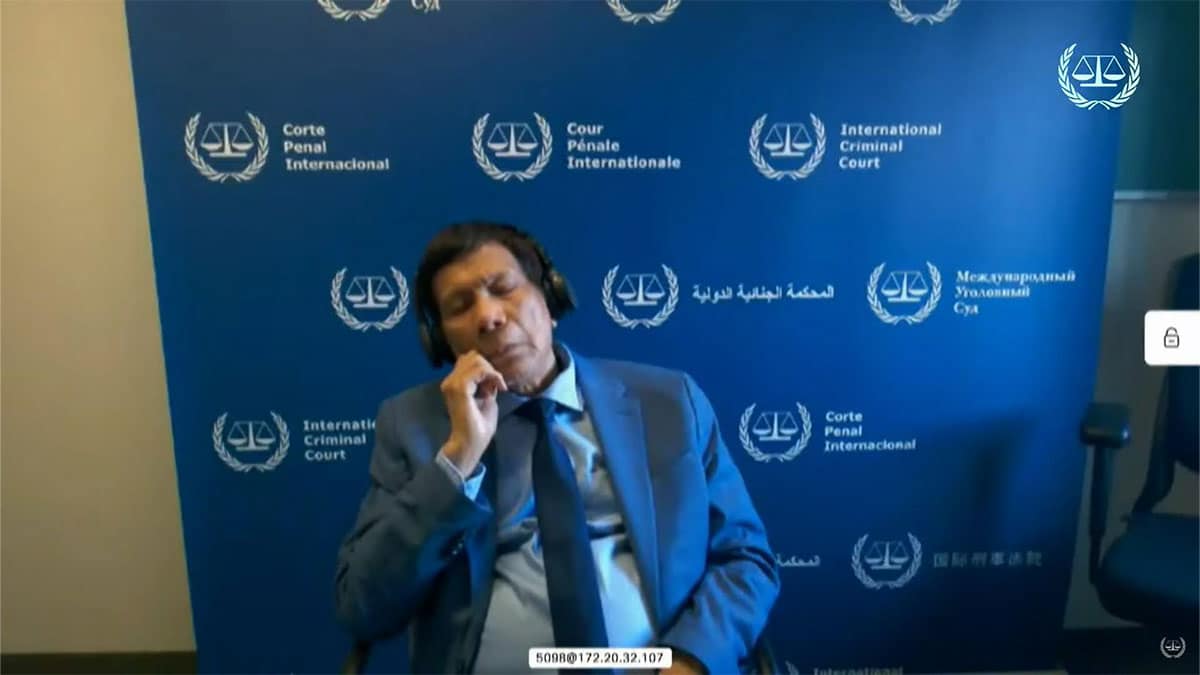The International Criminal Court (ICC) has turned down a move by former Philippine president Rodrigo Duterte to disqualify two judges handling the jurisdictional challenge in his case, a significant legal setback as proceedings over his controversial anti-drug campaign continue.
In a decision dated June 9 and signed by Judge Tomoko Akane, the court confirmed that all sitting judges unanimously rejected Duterte’s application to exclude Judges Reine Alapini-Gansou and Sergio Gerardo Ugalde Godínez Flores from the case. “A plenary of judges was convened… The plenary of judges, acting unanimously, decided to reject the Application,” the ruling read. The court said a full explanation will be released later.
Duterte, who is facing charges over his role in the deadly “war on drugs,” was arrested on March 11, 2025, upon returning from Hong Kong. ICC authorities alleged he masterminded and enabled the operations of death squads while serving as both Davao City mayor and president, resulting in widespread killings of suspected drug offenders. He was flown to The Hague the same day and has since appeared via video before ICC judges. A hearing to confirm the charges is scheduled for September 25.
Duterte’s lawyer, Nicholas Kaufman, sought the disqualification of the two judges, arguing they had already authorized the investigation into Duterte—raising concerns about impartiality. “It is not reasonable to expect a judge who has recently expressed a highly publicized position on a specific legal issue to depart from that view,” Kaufman stated in a May 12 corrigendum.
However, the ICC Office of the Prosecutor firmly countered this, saying Duterte’s camp failed to meet the high bar needed to challenge judicial impartiality. Deputy Prosecutor Mame Mandiaye Niang emphasized in the court’s response that the judges’ earlier rulings were preliminary and did not suggest bias. “[T]he Judges’ prior ruling does not amount to any perceived bias in this case,” the prosecution wrote, adding that accepting Duterte’s argument would create an “untenable situation” where judges could not revisit legal issues.
The ICC maintains that it retains jurisdiction over alleged crimes committed while the Philippines was still a party to the Rome Statute, from November 2011 until the country’s withdrawal took effect on March 17, 2019.






